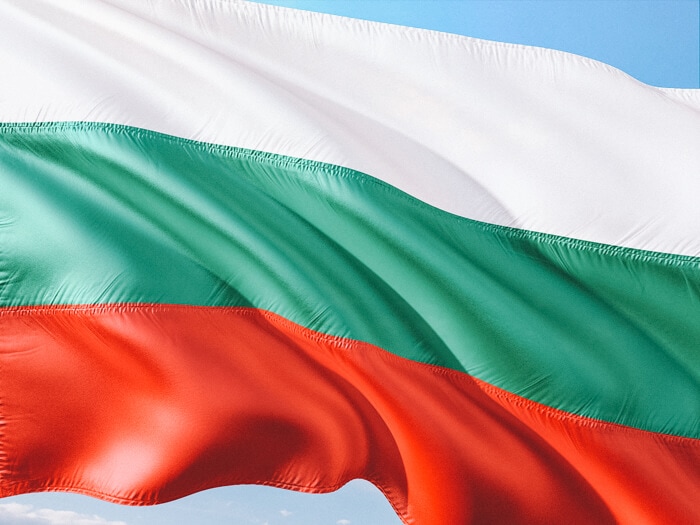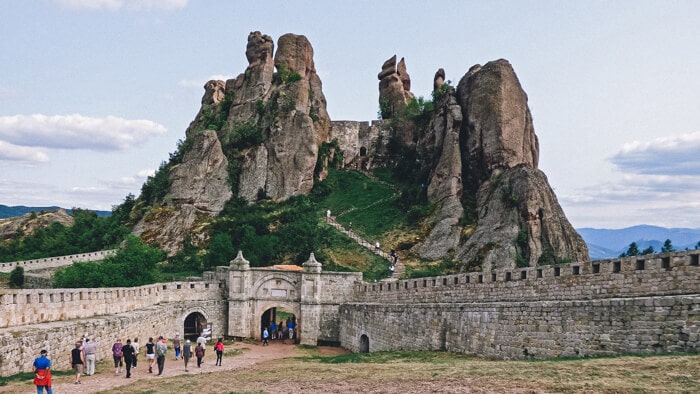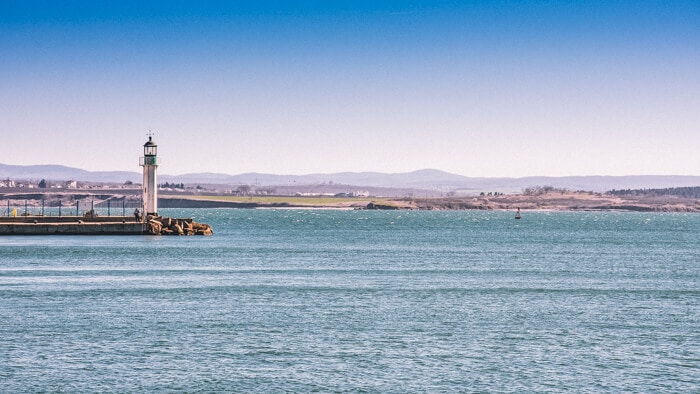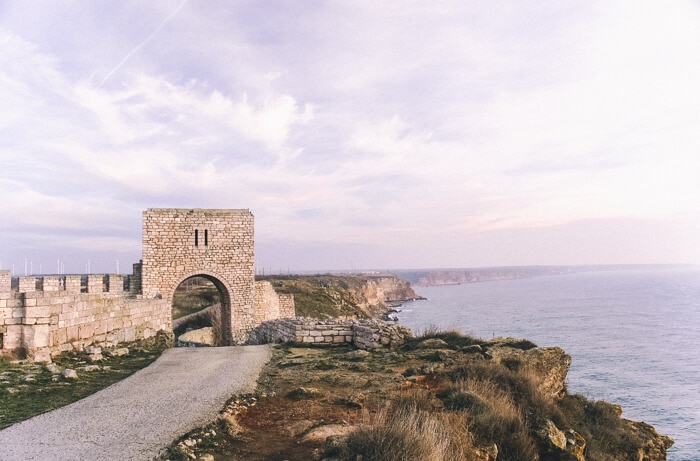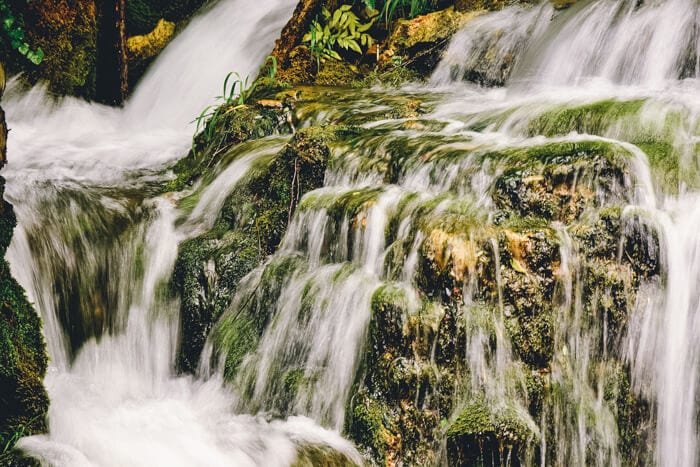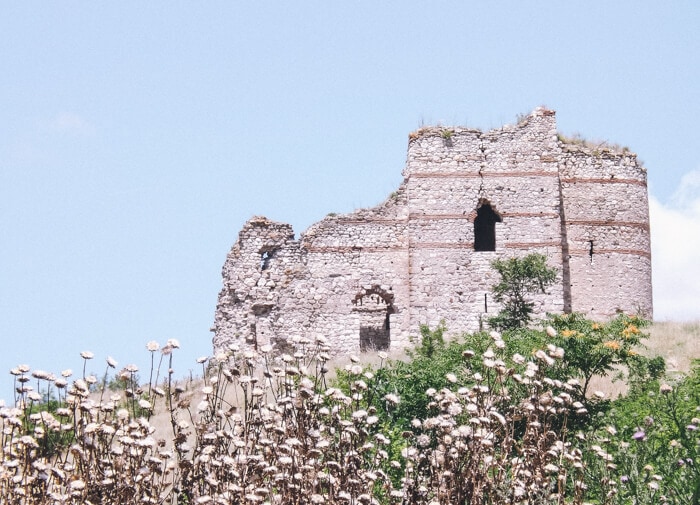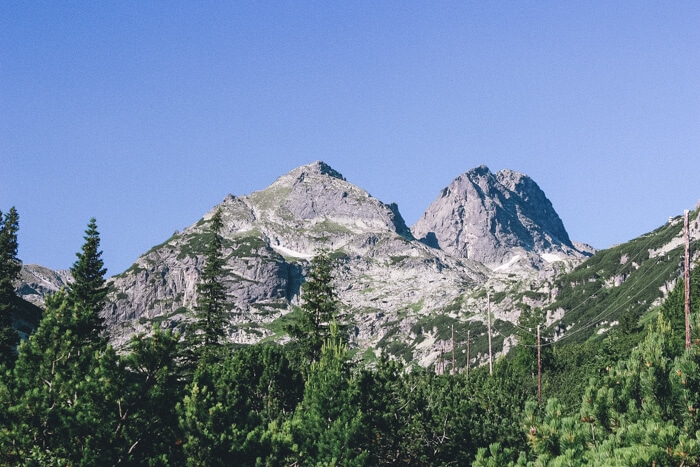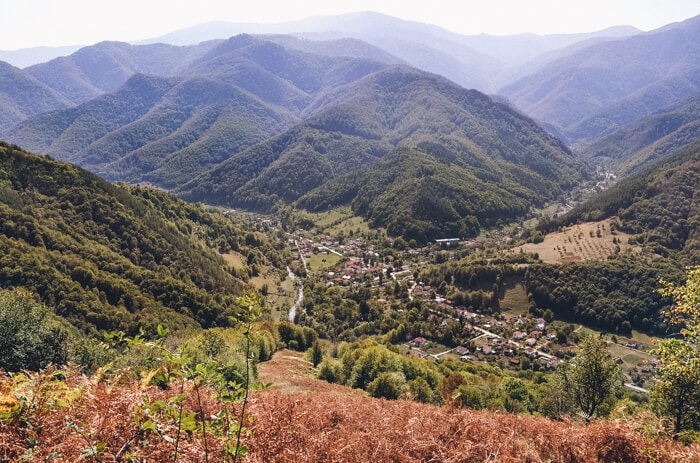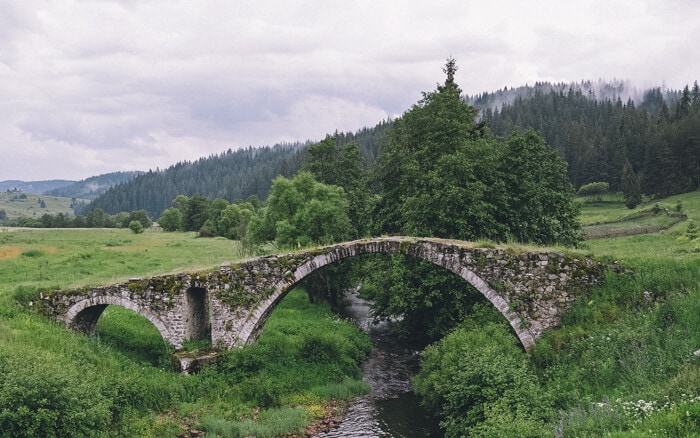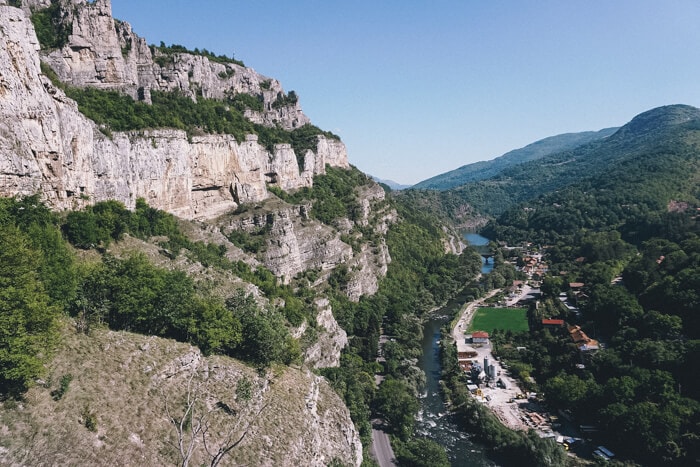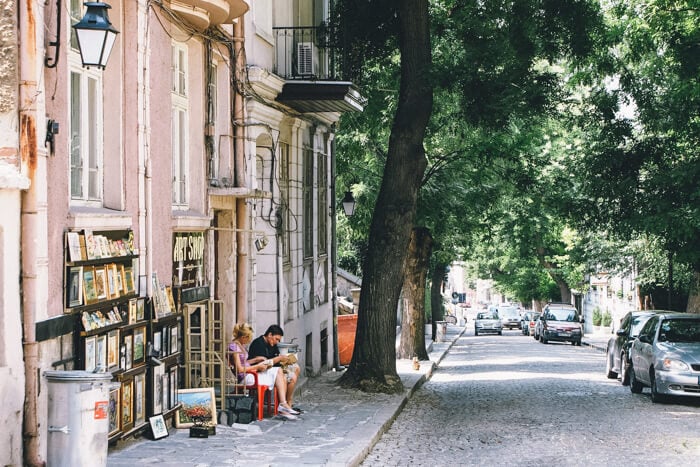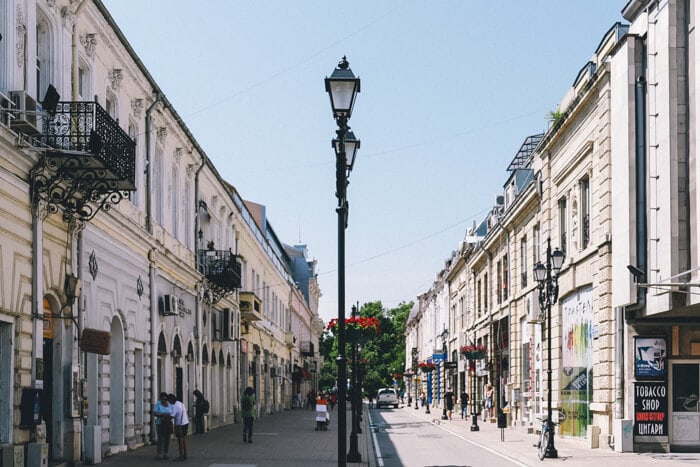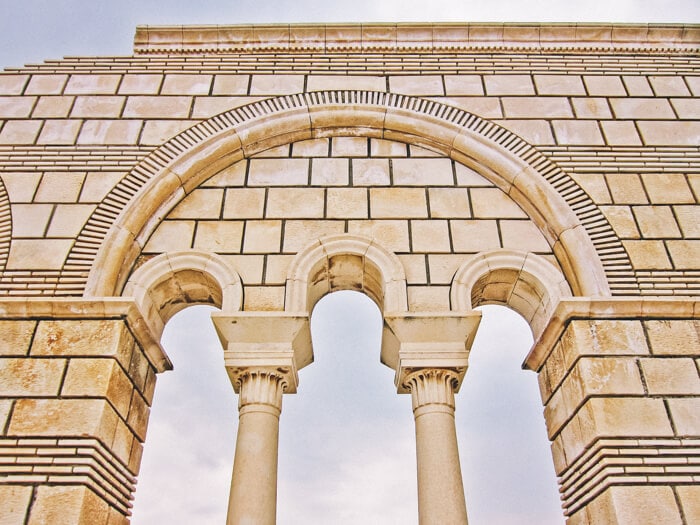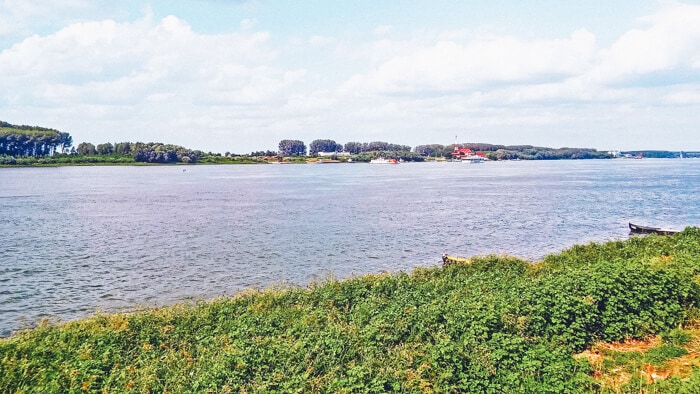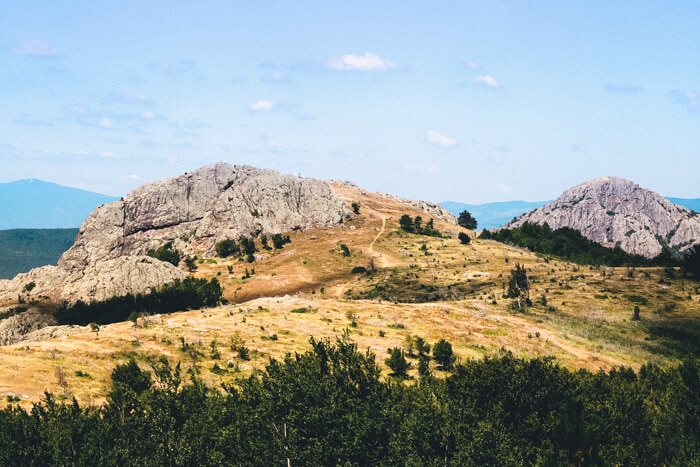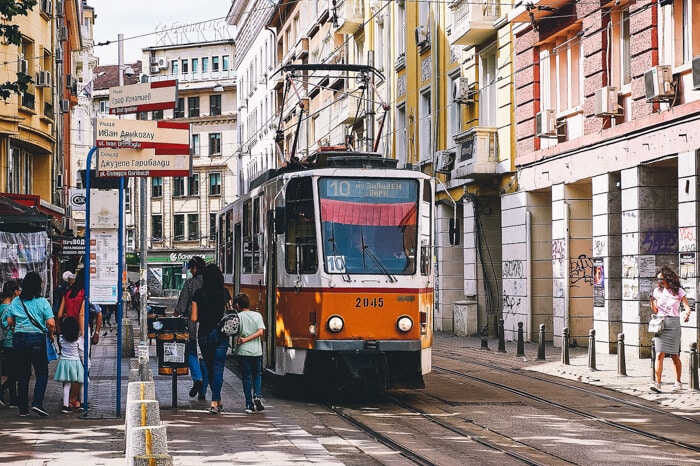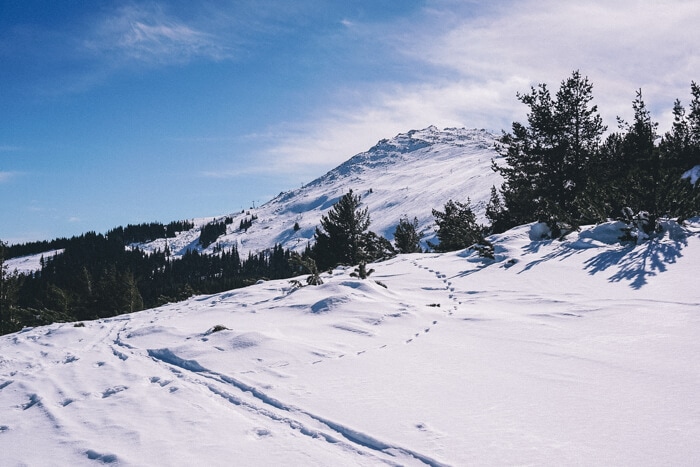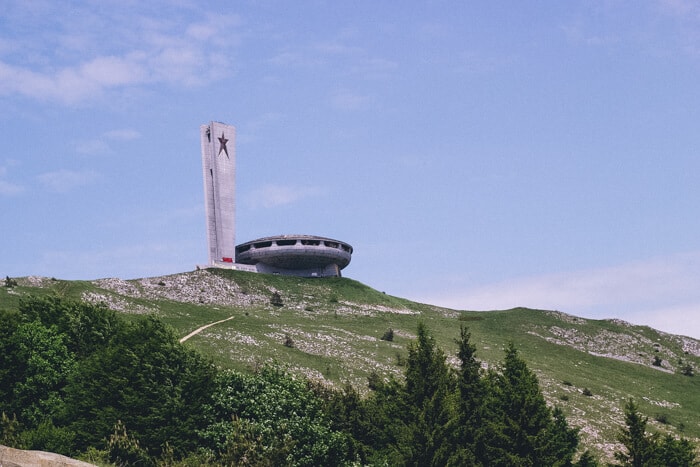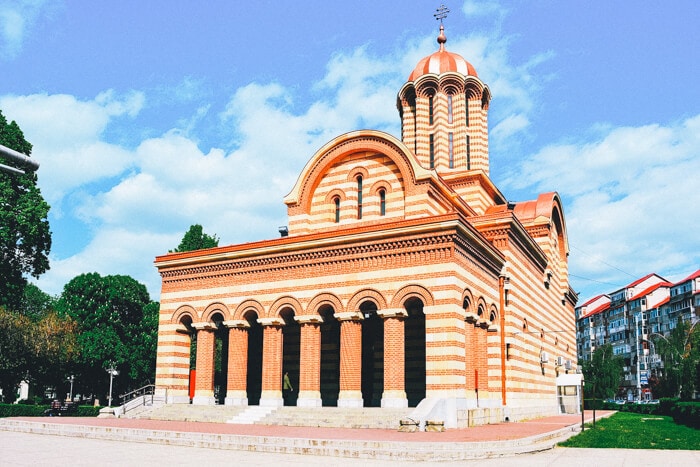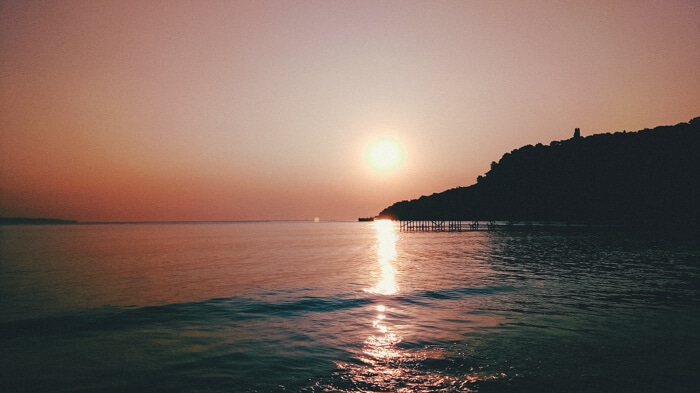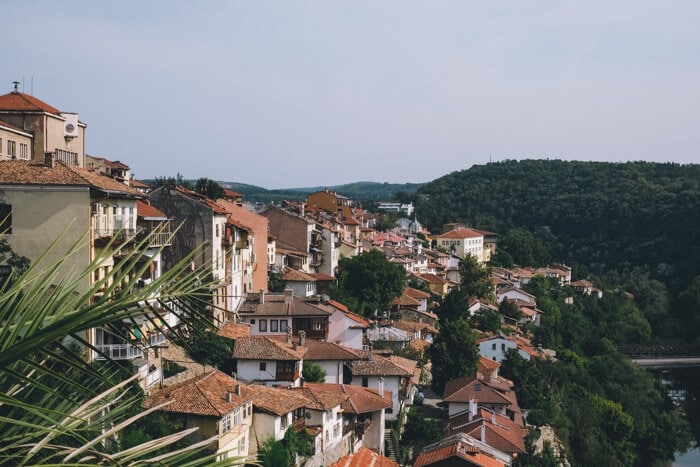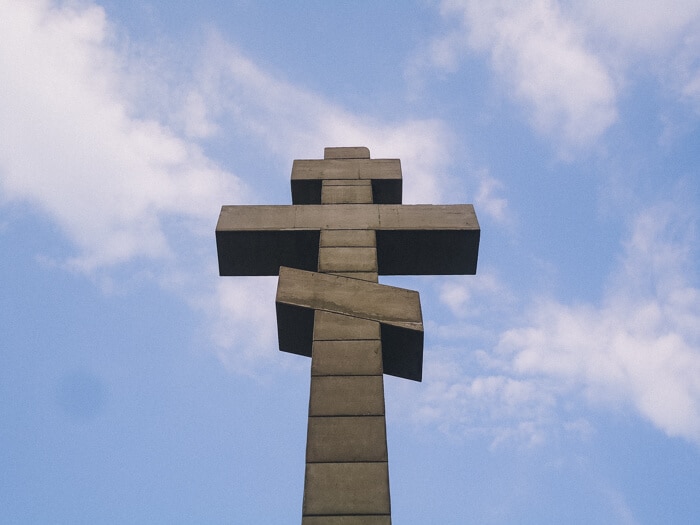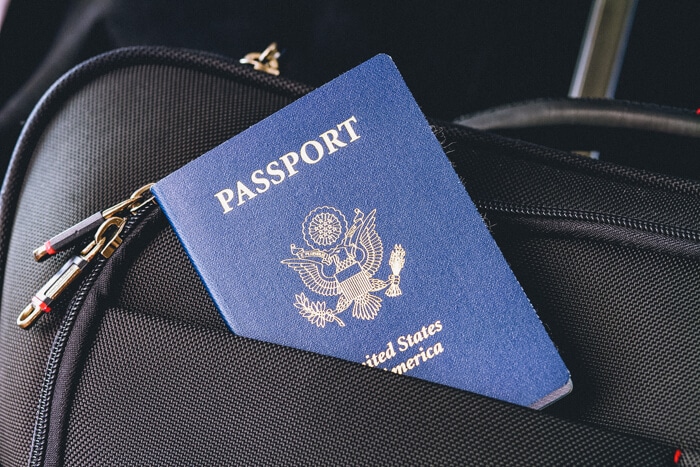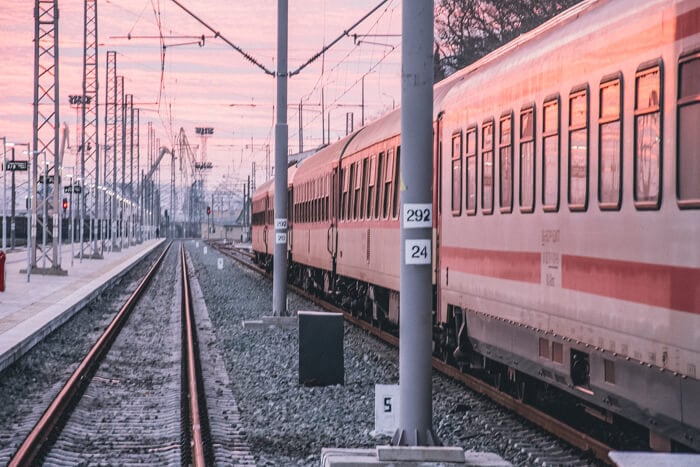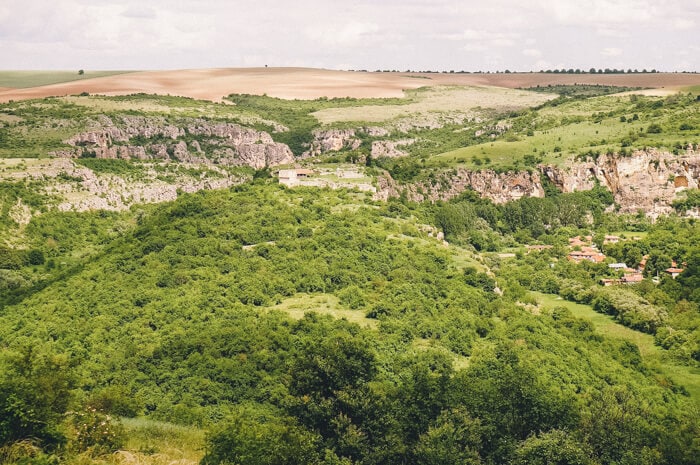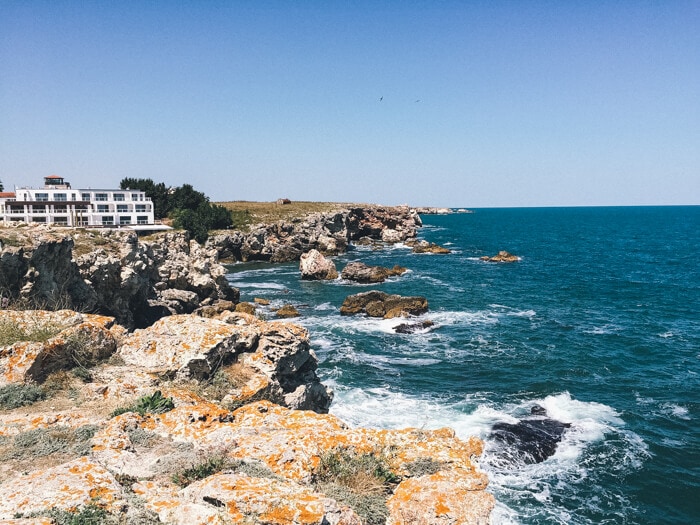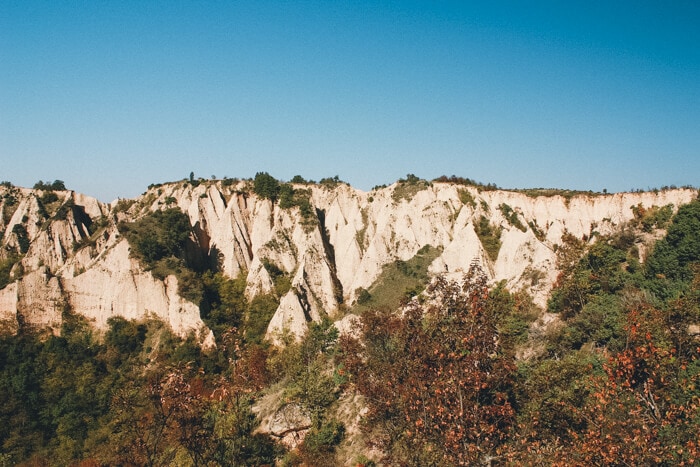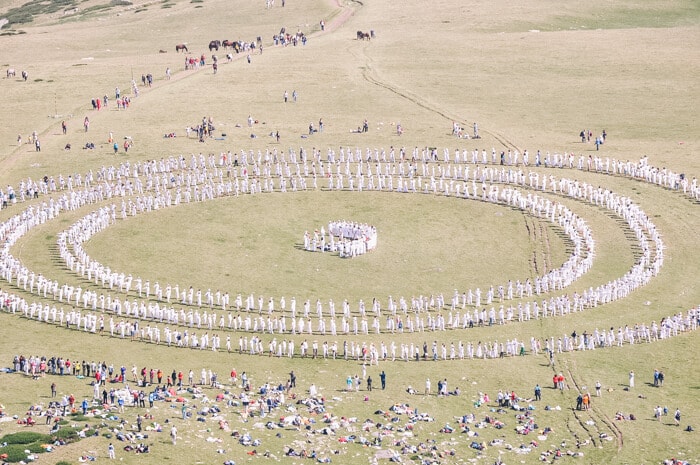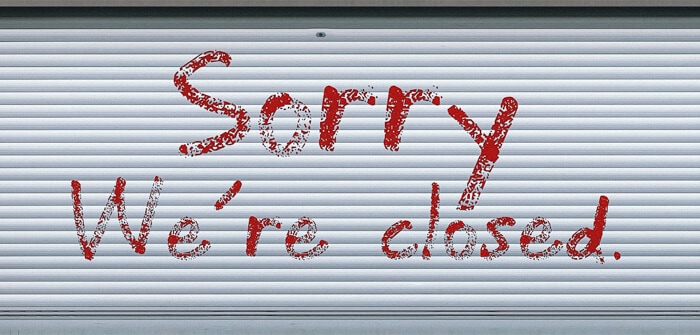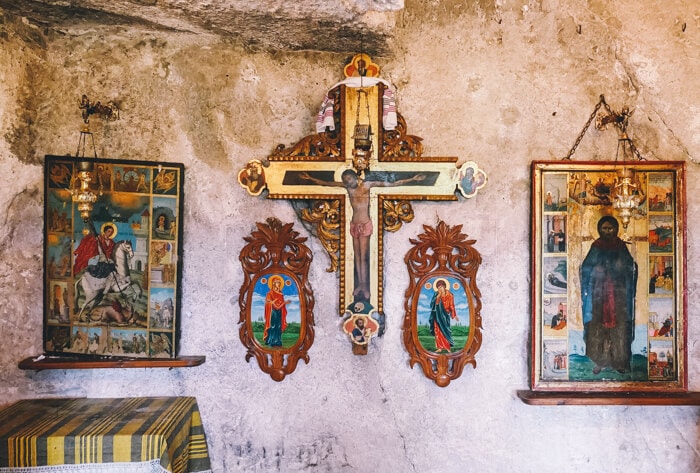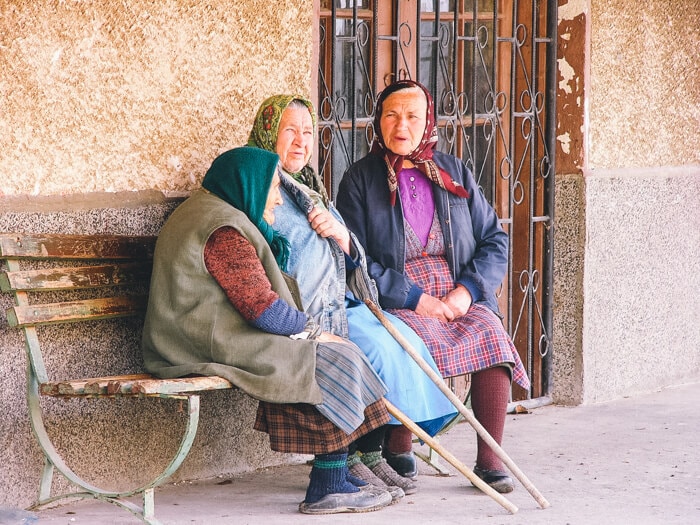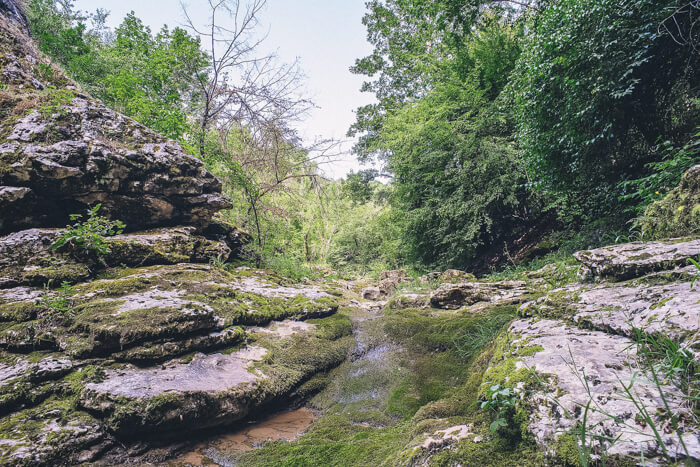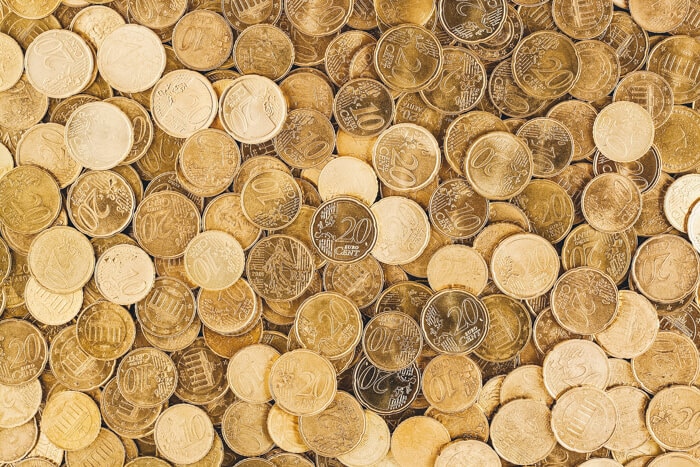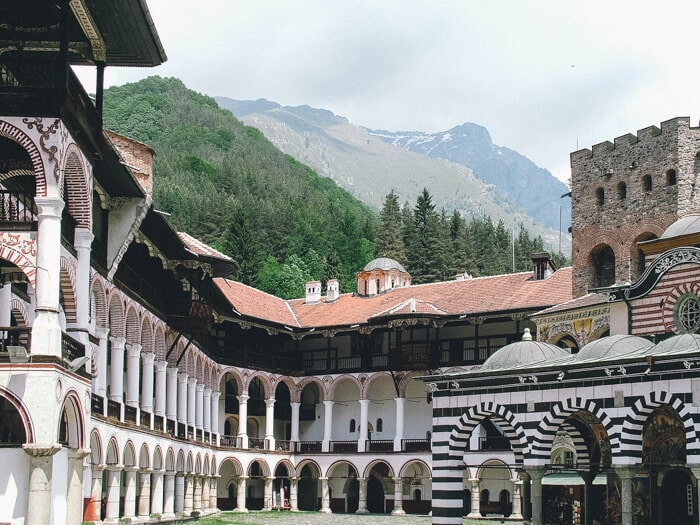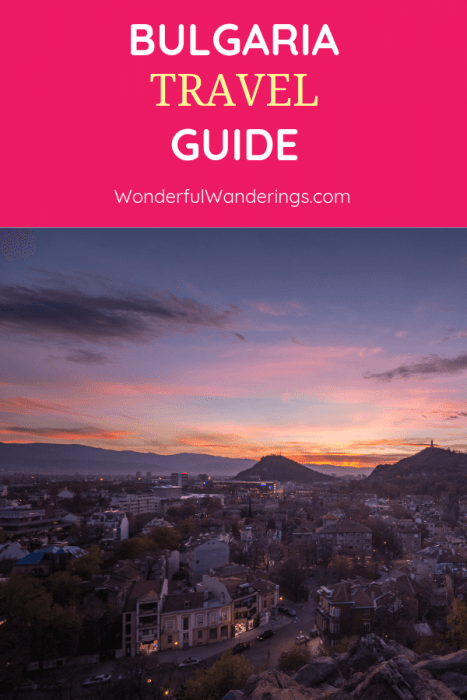Planning a trip to Bulgaria? Great idea! This Bulgaria Travel Guide will help you do just that.
Bulgaria is a diverse country. Located in the southeast of Europe, between Romania, Serbia, Macedonia, Greece, Turkey, and the Black Sea, it holds beautiful historical cities, the rather grey capital of Sofia, the party coastal town which is also UNESCO World Heritage Nessebar and the Balkan Mountain Range splitting the country in half.
It’s a founding member of the Organization for Security and Co-operation in Europe (OSCE) and a member of the European Union, NATO, and the Council of Europe.
Check out this guide to plan your own Bulgaria holiday.
Contents
- Bulgaria travel guide: quick facts
- Bulgarian provinces
- 1. Blagoevgrad
- 2. Burgas
- 3. Dobrich
- 4. Gabrovo
- 5. Haskovo
- 6. Kardzhali
- 7. Kyustendil
- 8. Lovech
- 9. Montana
- 10. Pazardzhik
- 11. Pernik
- 12. Pleven
- 13. Plovdiv
- 14. Razgrad
- 15. Ruse
- 16. Shumen
- 17. Silistra
- 18. Sliven
- 19. Smolyan
- 20. Sofia City
- 21. Sofia (province)
- 22. Stara Zagora
- 23. Targovishte
- 24. Varna
- 25. Veliko Tarnovo
- 26. Vidin
- 27. Vratsa
- 28. Yambol
- How to travel to Bulgaria
- How to travel around Bulgaria
- What to pack for Bulgaria
- The best time to visit Bulgaria
- What to eat in Bulgaria
- 10 events in Bulgaria you can’t miss
- Public holidays in Bulgaria
- Cultural customs to be aware of in Bulgaria
- Best places to stay in Bulgaria
- Don’t forget travel insurance
- Basic phrases and their pronunciation
- Is Bulgaria safe to travel to?
- The use of cash and cards in Bulgaria
- Calling abroad, WiFi and data use in Bulgaria
- Tipping in Bulgaria
- A brief history of Bulgaria
Bulgaria travel guide: quick facts
Size: 110,994 km² or 42,855 sq mi
People living there: more than 7,050,000
Capital: Sofia
Governmental structure: unitary parliamentary republic
National day: March 3
Time zone: Eastern European Time / UTC+2 / GMT+1
Currency: Bulgarian lev
Power voltage and socket type(s): 230V, plug types F and C. If these don’t match with your devices, make sure to bring a universal adapter.
Official religion(s)/Freedom of religion: Freedom of religion. 60% of the population is Christian, followed by non-believing citizens, and Muslims.
Official language(s) and general knowledge of English: Bulgarian is the official language. Basic English is widely spoken in urban areas.
Drives on this side: right
International driver’s licence accepted? yes
Phone code: +359
Can you drink tap water in Bulgaria? yes
Vaccinations needed? no
Want more quick facts about Bulgaria? This post is a list of cultural, historical, funny and other facts about the country.
Bulgarian provinces
Bulgaria has 27 provinces, or 28 if the capital Sofia is counted separately, of which none have an official name. There’s a lot of diversity between provinces. Those in the south are home to the beautiful Rhodope Mountains, whereas the Black Sea coast is home to the big cities of Varna and Burgas and some exceptional seafood.
Tourists traveling to the northwest of the country should be aware that it’s officially the poorest region in the EU and that they will see abandoned villages and extreme poverty. The provinces are usually referred to mentioning their provincial capitals. These are:
1. Blagoevgrad
Blagoevgrad is one of the best provinces for those searching for adventure holidays in Bulgaria. As well as the city of the same name’s old quarter, the most popular attractions are the Seven Lakes of Rila and the spa town of Sandanski.
2. Burgas
Home to Bulgaria’s second city, Burgas, it’s located just North of Turkey and has plenty of resorts and destinations on the Black Sea. The city of Burgas is very historical and has a number of museums about its past and historical sites to check out. It’s one of the best cities to visit in Bulgaria (if you like cities).
3. Dobrich
Dobrich province is famous for its friendly hospitality and hearty food. The city of Dobrich isn’t the only place worth visiting here, head to Balchik to see a Bulgarian chateau, or Kavarna to enjoy the seaside.
4. Gabrovo
Gabrovo province is in the heart of beautiful Bulgaria and it’s famous for spectacular views of the Balkan Mountains. During the Bulgarian National Revival, the city of Gabrovo came to be known as the capital of humor and satire and is an important craft, trade, and education center.
&nbso;
5. Haskovo
Haskovo province is a center for cultural events. Some of the most popular attractions are the Roman tomb and monastery at Villa Armira, the Thracian tomb of Aleksandrovo, and Sakar mountain.
6. Kardzhali
Kardzhali is famous for its Thracian ruins, which can be found throughout the province. There are also a number of unusual rock formations in the province including the Petrified Wedding, the Womb Cave, and the Stone Mushrooms.
7. Kyustendil
Kyustendil is home to the largest Eastern Orthodox monastery in Bulgaria, the Monastery of St Ivan of Rila, better known as the Rila Monastery. Located in the Rila Mountains, it’s one of the most important tourist attractions in the country, and the interior is adorned with sublime and intricate frescoes.
8. Lovech
Lovech is one of the five provinces occupied by Bulgaria’s third-largest protected area – the Central Balkan National Park. In it, you’ll find mountains, great hiking trails, and waterfalls. Prominent tourist destinations on a Bulgaria trip are the cities of Troyan, Lovech, and Teteven.
9. Montana
Montana is a region in the northwest of the country. Founded as a fortress on the Ogosta River in Roman times, the Montana Dam is a popular Bulgaria destination which offers sports, fishing, and water tourism.
10. Pazardzhik
Pazardzhik is in the southwest of Bulgaria and it’s a great place to relax as there are many spas. It’s also home to some of the country’s most popular tourist attractions, including historical Thracian sites and medieval churches. For nature lovers, there’s a lot to do too – with the Rhodope mountains in the south.
11. Pernik
Pernik is a region which is best-known for its mining economy. So much so, that the only mining museum on the whole of the Balkan peninsula is located here. There are also a number of cultural sites including fortresses and Thracian temples.
12. Pleven
Pleven is one of Bulgaria’s wine-producing regions and you can find the Balkan’s only wine museum here. Not only can you learn about wine, but you can also take part in wine tasting events. Pleven is one of the hottest regions in the country.
13. Plovdiv
Plovdiv, the capital of the region, is the oldest populated city in Europe and the second-largest city in Bulgaria. Visit Plovdiv if you’re interested in history. There are cultural and architectural leftovers from Thracians, Ottomans, and many more and the old town can easily be visited on a day trip but do spend the night because the region also has beautiful mountain ranges and is a great place to experience the great outdoors while visiting Bulgaria.
14. Razgrad
Razgrad sits upon important roads used in ancient times for crossing between Central Europe, the Black Sea, and Asia. Because of this, there’s a mix of architectural influences in the region’s capital, including the Ibrahim Pasha mosque and the city’s clock tower.
15. Ruse
Ruse is one of the northernmost regions in Bulgaria and crossing the Danube from its capital city of the same name takes you into Romania. The area has been inhabited since 5,000 BC and there are a lot of archaeological Roman sites to visit.
16. Shumen
Shumen region is spanned by the Shumen Plateau National Park, which is one of Bulgaria’s richest areas for wildlife. Here, you can spot a wide range of birds, reptiles, and mammals. People have lived in Shumen since ancient times, with evidence of tools and vessels found in the region’s caves. The site of Madara is a UNESCO World Heritage site.
17. Silistra
The region of Silistra is in the north of the country and provincial capital was only reclaimed from Romania in 1940. The region is a great spot for eco-tourism, as it’s home to Malak Preslavets (a lake covered in water lilies), and the UNESCO listed Srebarna biosphere reserve.
18. Sliven
Sliven is home to a number of protected nature areas, and the region offers a wide range of different tourism options. It has been inhabited since ancient times, and Roman fortresses, as well as many monuments through the region’s villages, are a constant reminder of the different rules that Sliven has been under in the past.
19. Smolyan
Smolyan is said to be in the most beautiful part of the Rhodope mountains, where the mythological singer Orpheus is said to have tamed the beasts of the mountains with his songs. There are a huge number of natural landmarks including the Wonderful Bridges, the Devil’s Throat, and the Uhlovitsa and Yagodina caves.
20. Sofia City
The country’s capital, Sofia is one of Bulgaria’s most-visited destinations. And with good reason. The city is a cultural center, home to theatres, cinemas, and a thriving art scene. It’s also a good place to base yourself to travel Bulgaria. It’s said that the accent is a little unusual, and there are a lot of unexpected e’s added to words!
21. Sofia (province)
This province surrounds the capital city and is a great place for skiing. There are a number of ski resorts including Vitosha, only 10km outside of the capital, a fantastic destination for snow sports in winter, also offers great hiking and outdoor adventure opportunities in the summer.
22. Stara Zagora
The home of “the Valley of the Thracian Kings,” this province is steeped in history. Some sites date back to Neolithic times. The most important site is the UNESCO listed tomb of Kazanlak. In this province, you can also see Bulgaria’s oldest tree, an oak which is around 1,640 years old.
23. Targovishte
Targovishte is a wine producing region, notable for its Chardonnay and Muscat varieties. The region is rich in nature, thanks to its location on the Eastern Danubian Plain. It is also home to the Popovo Uplands, and the mountain ranges of eastern fore Balkan and Lisa.
24. Varna
Varna, located on the Bulgarian coast, is one of the best regions to try fresh seafood in Bulgaria. Many of the seaside towns here, such as Sunny Beach are seasonal, meaning that they’re thronged with tourists in the summer, but dead in the winter. Heading inland, the region is hilly, and there are a number of forests worth a visit.
25. Veliko Tarnovo
The city of Veliko Tarnovo was the medieval capital of this Bulgarian state and is one of the oldest cities in the country, with a history dating back over 5,000 years. There are numerous Orthodox temples, but the unmissable attraction here is the Tsarevets medieval fortress, surrounded on 3 sides by the Yantra River.
26. Vidin
Vidin is the most north-westerly region of Bulgaria. There are a number of famous sights both natural and man-made in this small region, including Chuprene biosphere reserve, the Belogradchik Rocks, and ancient castles in Kula, Chichil, Florentine, and Topolovets.
27. Vratsa
Vratsa is awash with protected areas. This makes it a great place for eco-tourism and offers many opportunities to get out into nature. It’s also home to the Botev’s path memorial complex – Hristo Botev was a heroic revolutionary and poet, who is now considered a symbolic historical figure and national hero.
28. Yambol
Yambol is a plain and hilly region, which shares a border with Turkey. Due to its proximity to Turkey, there are many sites where you can learn about the whole country’s struggle against the Ottoman Empire. The region is steeped in folklore, and there are regularly singing competitions and folkloric competitions in Yambol.
As you can see, there are plenty of things to do in Bulgaria but first, you need to get there…
How to travel to Bulgaria
Entry and exit requirements
Bulgaria is currently outside of the Schengen zone; however, their visa policy is based on the Schengen acquis. Citizens from EU countries outside of the Schengen zone do not need a visa for a stay of up to 90 days.
Citizens from the United States and the rest of the world do not need a visa for a stay of up to 3 months, but their passports must have at least 6 months validity remaining.
Transportation
When entering Bulgaria via land, there can often be long delays at border crossings, especially when you use public transport but also when you come by car. The longest delays tend to be at the Turkish border. Driving to Bulgaria can, therefore, be a bit of a hassle.
By bus
There are several international bus companies operating in all of the countries which share borders with Bulgaria. Most arrive in Sofia, but some will go directly to Plovdiv. When traveling in or out of Bulgaria, should you need a visa, the cost of this is not included in the bus ticket. There are usually long delays at border crossings, and you’ll have to either get off and present your passport or border officials will board your bus.
Flixbus offers cheap bus travel to Bulgaria.
By train
Entering Bulgaria by train is not possible from Macedonia, and the Balkan express from Belgrade to Serbia only operates from June to September. Trains from Romania usually stop in Ruse. The Bosphorus express runs from Bucharest (Romania) to Istanbul (Turkey) and makes a stop in Ruse.
Check here for train routes and prices from within Europe.
By ferry
There are two ferry services across the Danube for border crossings from Romania: Calarasi – Silistra and Bechet – Oryahovo.
Very few tourists leave or enter Bulgaria via the Black Sea. However, it is possible to travel from Varna to Ukraine/Georgia or vice versa with Navibulgar, who offer a passenger service onboard their cargo ships.
By plane
Bulgaria has a small number of international airports, with the most flights to Bulgaria going to the airport of Sofia. The majority of direct flights are to other European cities, although there are some to the middle east too. The other international Bulgaria airports are Varna, Plovdiv, and Burgas.
Check Skyscanner for a clear overview of your flight options and the best prices. Skyscanner lets you set flight alerts and shows you which month the prices are lowest. Very handy!
How to travel around Bulgaria
Independent travel around Bulgaria
Thanks to more and more tourists going on vacation to Bulgaria in recent years, the infrastructure of the transport system has been updated regularly, and although the standards may not be as high as those in more developed European countries, it’s an easy and relatively inexpensive country to travel around.
Travel in Bulgaria and you’ll find that buses are the most reliable mode of public transport to use, as services run between big cities, but also to small towns and villages throughout the country. Sometimes it’s a lottery whether or not you’ll get a comfortable and modern bus!
In the summer, some of the towns on the east coast are connected by ferry.
In terms of private transport, driving in Bulgaria is not for everyone. Bulgarians are known to drive aggressively, but you must keep a cool head, as road rage induced fights are not uncommon. Try to stick to main roads where possible too. Potholes plague Bulgarian roads, and some country backroads are almost impassable.
On the other hand, a rental car does offer you the most flexibility to go where you want to go, when you want to go there. For a good overview of prices, check here.
Lastly, if you’re driving your own car rather than a rental, you must have a vignette sticker to be legally driving here. These are easy to obtain and sold at all border crossings, petrol stations, and post-offices. They cost 15 lev for a week or 30 for a month.
What to pack for Bulgaria
Bulgaria has a continental climate, meaning that summers are hot, and winters are cold. Although rain is commonplace in the mountains, it’s less so in the low-lying regions as most rainfall occurs on the Adriatic coast, before it’s able to reach Bulgaria.
In summer, it can reach up to 40 degrees inland, whereas, in the winter, cold air from Russia can bring heavy snowfall, severe frosts, and strong winds.
What to pack for Bulgaria in summer
- sunglasses
- suncream
- a swimsuit
- light clothing
- good walking sandals
- a reusable water bottle
What to pack for Bulgaria in winter
- a hat
- a scarf
- gloves
- a warm and waterproof coat
- comfortable waterproof shoes
- snow boots
- a reusable water bottle
What to pack for Bulgaria in Spring and Fall
Late fall and early Spring can feel like winter while late Spring and early winter can feel like summer. These are shaky seasons and it’s best to come prepared for big weather switches. Layer up and make sure to bring a waterproof coat and comfortable shoes.
The best time to visit Bulgaria
Because of the temperate climate, the best time to visit Bulgaria is anytime between spring and autumn – i.e. from mid-May to mid-October.
Beach holidays to Bulgaria are best taken between July and August when the high temperatures are tempered by a cool breeze from the Black Sea. However, if you’re traveling inland, it can get extremely hot at this time of year – up to 40 degrees Celsius.
For skiers, the regular season is usually from December to April. However, heavy snowfall means that winter sports are possible until June at some resorts.
What to eat in Bulgaria
Want to know more about Bulgarian cuisine? Read about the Bulgarian foods I tried when I was there.
Shopska salad – The shopska salad is like a traditional Greek salad, but with soft Bulgarian cheese sprinkled over the top instead of feta.
Shkembe – A traditional tripe soup that consists of paprika, milk, and oil.
Tarator – A cold cucumber soup topped with yogurt, garlic, oil, walnuts, dill, and water. It’s often eaten in summer.
Lozovi Sarma – Minced meat, herbs, yogurt, and rice, all wrapped up in a vine leaf. Delicious!
Gyuvech – Actually, the name of the pot it’s cooked in, is a hearty stew consisting of beef, mushrooms, peppers, onions, and paprika. It’s often topped with a fried egg and/or cheese.
Moussaka – there are many variations of moussaka across the Balkans. Bulgaria’s moussaka relies on potatoes as a base, rather than aubergines (eggplant).
Kebapche – A variation on the traditional Turkish kebab, the Bulgarian version is set apart as sirene, a white cheese, is grated over it.
Kiselo Mlyako – This thick and sour yogurt is served alongside Bulgarian main courses. It’s good for keeping your gut healthy.
Baklava – Another food that is found across the Balkans and into the Middle East. Bulgarian Baklava is a filo pastry that’s a bit less sugary than its Turkish counterpart.
Tikvenik – A tasty pastry dessert filled with pumpkin. There are also walnuts, orange zest, cinnamon, and nutmeg in there.
&bsp;
10 events in Bulgaria you can’t miss
- the Rose Festival in Kazanlak and the Rose Valley
- Kapana Fest in Plovdiv
- Nestinartsvo, the Barefoot Fire Dance, in various villages in the Strandzha Mountains. The most popular one is in Bulgari
- Opera in the Park in Sofia
- Fesitval of Folk Art “The Magic of Rila Mountain” in Borovets
- Bourgas Sand Sculptures Festival
- Hills of Rock in Plovdiv
- the Bagpipe Contest in Gela
- Bansko Jazz Fest in Bansko
- Apollonia Festival of Arts in Sozopol
Public holidays in Bulgaria
On the following holidays, most governmental offices and businesses in Bulgaria are closed. If a holiday is on a weekend, the Monday after will be a holiday as well.
- New Year’s Day
- Liberation Day (March 3)
- Orthodox Good Friday
- Orthodox Holy Saturday
- Orthodox Easter Sunday
- Orthodox Easter Monday
- Labor Day (May 1)
- St George’s Day (May 6)
- Culture and Literacy Day (May 24)
- Unification Day (September 6)
- Independence Day (September 22)
- Christmas Eve Day
- Christmas Day
- Second Christmas Day
Cultural customs to be aware of in Bulgaria
Be careful when you nod your head in Bulgaria – it means no! Shaking it means yes. Better to just learn the words for yes and no, which you’ll find in the Basic phrases and their pronunciation section below.
If you’re offered a chocolate from a box for any reason at all, take one, congratulate the person, and smile. Eating the chocolate is a form of congratulations and it’s offensive to say no.
Also, don’t be surprised when people barely smile. It’s not a sign of unfriendliness, I learned when I was there. Read more about this here.
Best places to stay in Bulgaria
Booking.com is my go-to site for booking hotels and guesthouses. It has a bunch of filtering options so I can easily get a list of only the hotels that meet my criteria. If you’re looking for accommodation in Bulgaria, I highly recommend you check there.
Sometimes I rather stay in an apartment and to find one, I use Airbnb.
Don’t forget travel insurance
Plan for the best, prepare for the worst. Travel insurance has you covered in case (part of) your trip gets canceled, you get sick or hurt abroad, and sometimes even when your electronics break or get stolen. I always make sure I’m covered every trip I go on.
Don’t have travel insurance yet? Check out SafetyWing. They offer super flexible plans that you can even sign up for while you’re already on your trip. On top of that, they were the first travel insurance to cover COVID, and when I got COVID, they reimbursed all of my expenses without making a fuss. Their customer support team is great and I can personally recommend them.
Basic phrases and their pronunciation
Bulgaria uses the Cyrillic alphabet. To help, the pronunciation is written in the Roman alphabet. The capitalization is where you put the stress on the word.
How are you?
Fine, thank you
Nice to meet you
What is your name?
My name is…
Yes
No
Please
Thank you
Excuse me
I’m sorry
I can’t speak Bulgarian (well)
Do you speak English?
I don’t understand
Where is the toilet?
How much is this?
OK, I’ll take it
How do I/we/ get to…
… by subway/bus/train?
I need your help
Как си? (KAK see?)
Добре, благодаря (dob-REH, bla-go-da-RYAH)
Приятно ми е да се запознаем (pree-YAT-noh me eh dah seh zah-poz-NAH-em)
Как се казваш? (kahk seh KAHZ-vash?)
Казвам сe… (kahz-VUHM seh…)
Да (dah)
Не (Neh)
Моля (MO-lya)
Благодаря (bla-go-da-RYAH)
Извинете (iz-vi-NEH-teh)
Съжалявам (su-zhah-LYAH-vahm)
Не говоря български [добре] (neh goh-VOH-ryah BUL-gar-ski [DOB-reh])
Говорите ли английски? (goh-VOH-ri-teh le ahn-GLIY-ski?)
Не разбирам (neh raz-BEE-ram)
Къде е тоалетната? (KU-deh eh to-ah-LET-na-ta?)
Колко е това? (kohl-KOH eh toh-VUH?)
Добре, аз ще го взема (doh-BROH, ahz meh goh VZEH-muh)
Как да стигна/стигнем до … с автобус/метро/влак? (kahk dah STEEG-nuh/STEEG-nehm doh … sahf-toh-BOOS/meh-TROH/vlahk?)
Имам нужда от помощ (imam nuzhda ot pomosh)
Is Bulgaria safe to travel to?
So how safe is Bulgaria? Well, Bulgaria is a very safe country that is peaceful and generally safe for travel. Like most European countries, the most common crimes you’re likely to face are pick pocketing or tourist scams. These are just as you would find in other European cities, so keep alert when you’re out and about, especially in tourist areas.
Unfortunately, a problem that is prevalent across Bulgaria is corruption. Every year, 14 – 22% of the country’s GDP is unaccounted for, meaning that services covered by the taxpayer, such as healthcare and education systems, state administration, and infrastructure, suffer. It’s unlikely to affect you directly as a traveler, but there’s a small possibility that you need to use any of these services during your trip.
Taxi drivers are known to try and scam tourists, and a police officer might stop you and ask for a bribe if they notice you crossing the speed limits.
The use of cash and cards in Bulgaria
Although the currency is the lev, you will see prices in Bulgaria in Euros when visiting Bulgarian tourist hotspots – bear in mind that even if places accept Euros, the rate may not be beneficial to you.
That being said, Bulgaria is a budget-friendly destination. That in combination with its beautiful nature makes it a great place to go backpacking.
In major cities and tourist areas, you will have no problem finding an ATM. However, if you’re heading off the beaten track during your Bulgaria travels, be prepared and have money before you arrive, as not all small villages have an ATM.
When changing currency, do a bit of research to find out if you’ll get a better rate at home. In Bulgaria, only use an official exchange company to change money. Some unofficial exchange offices offer sketchy, and sometimes illegal, practices.
Calling abroad, WiFi and data use in Bulgaria
Those with a SIM card from an EU country shouldn’t have to pay roaming charges when calling, texting, or using data in Bulgaria. The same goes for some global phone plans.
If you want to budget your phone use in advance of your trip and be sure of a connection, check out Solis Wifi.
Skyroam offers both day passes and monthly subscriptions providing you with 4G on your trips. I’ve been using their daily passes not just when I travel outside the EU (no roaming charges for me in the EU) but also as a backup for when I think I’ll go over my phone’s data plan.
Tipping in Bulgaria
Tipping has become quite custom and expected in Bulgaria. Salaries are low and staff at restaurants, for example, highly depend on tips to make a living wage. Check out this informative Bulgarian blog post to find more specific information on who to tip what in Bulgaria here.
A brief history of Bulgaria
Thanks to its location in Southern Europe, Bulgaria was one of the first countries on the continent to be inhabited. The first people to settle here were the Thracians, from about 1,000BC. Many Thracian ruins and artefacts have been found all over the country, and the mark they left can be seen in many Bulgarian regions to this day.
As the Roman Empire spread out over Europe, the Thracians were wiped out by 50AD. The Romans became a dominant force as the Slavs and moved south and east.
However, the Bulgars, a war-like tribe came from Central Asia and expanded their empire. The Bulgars and the Slavs cultures began to merge, and around the 6thcentury they became the first Bulgarians.
Bulgaria then became the largest and one of the most prosperous Kingdoms in Europe. Its area covered Greece, the Adriatic, as far north as Ukraine, and the Black Sea. It remained this way until around 1400, when the Ottomans arrived from the south.
During Bulgaria’s first 50 years under Ottoman rule, almost half of the population were killed or left to starve. Things improved over the subsequent 450 years in their power, and Bulgaria managed to keep maintain its culture, language, and traditions.
In the late 19thcentury, Bulgaria became liberated from the Ottoman Empire. It had help from Russia in defeating the Turks and became a large country which was subsequently split up.
The whole of the Balkans was in a period of unrest in the first half of the 20thcentury, with wars between countries as well as the First and Second World Wars. Although Bulgaria declared itself as neutral, the Germans infiltrated and occupied it. However, Bulgaria did not turn over its Jewish population.
After the Second World War, Bulgaria was ruled by a communist government. Under their rule, many enterprises were nationalized, and Bulgaria became an industrial power. However, under the Communist leader Todor Zhivkov, the economy started to fail, and the public was completely controlled. The fearsome social security police dealt with anyone who spoke out.
In the final years of communism, nationalism was fierce and Bulgarian minorities were denied education, work, and homes. When the Berlin Wall fell in 1989, Zhivkov was arrested for inciting racial hatred.
In 1991, Bulgaria adopted the governmental model it still has today. The current president is the 5thto be democratically elected, and he has pledged to maintain Bulgaria’s EU and NATO status.
And that’s it! I hope this Bulgaria travel guide has given you some idea of what to see in Bulgaria and will be of help when you plan your Bulgaria vacation.
Posts about Bulgaria
Find below our best travel guides about Bulgaria.
PIN FOR LATER

